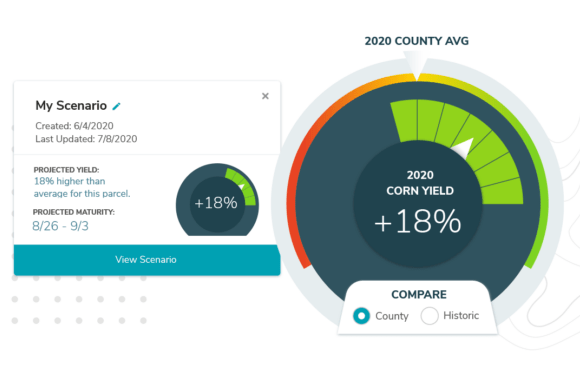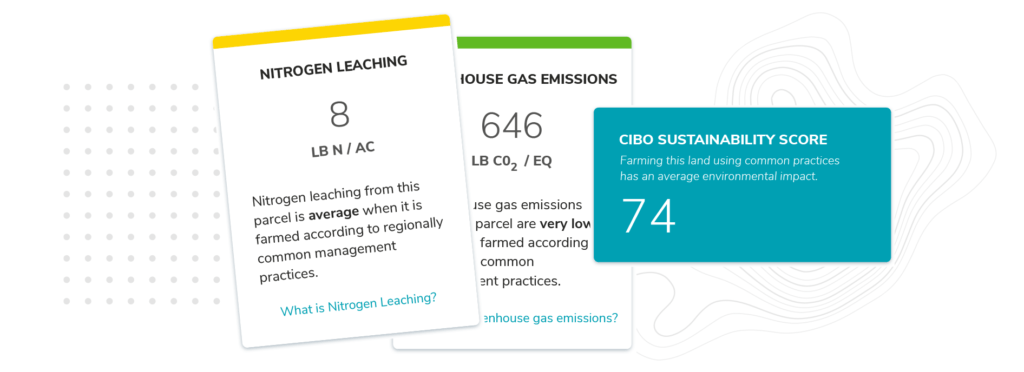
A St. Louis-based startup wants to do for farmland what Zillow has done for real estate markets, providing consumers with real-time data to help them make more informed decisions. CIBO’s platform uses technology grown out of Michigan State University and is meant to appeal to a wide range of users, including farmers, lenders and agriculture companies. The most appealing aspect of CIBO for some users might be that the platform doesn’t ask for any of their personal, farm, or input information.
CEO Daniel Ryan explains that CIBO is not a land sale or leasing site, but rather a Land Intelligence Platform that enables all users to evaluate and compare land with objective information. The platform collects vast amounts of public and private data, which its proprietary ecosystem of crop simulation, artificial intelligence, machine learning, and computer vision then interprets. The system generates insights for hundreds of million of acres of U.S. farmland, including past and in-season management practices and yields. Accessing the platform from a web browser or mobile app, users can search parcels locally or nationally against over 20 criteria, including all proprietary and public metrics.
CIBO was co-founded by Michigan State University agriculture expert Bruno Basso. “I’m much more interested in helping the buyer understand the sustainability and productivity of the piece of land than simply letting people know the price of the land,” Basso explains, describing the technology as much more powerful than Zillow. The technology, which has been developed and tested over 30 years, identifies the value and environmental sustainability of a piece of land and can simulate the way plants grow daily in a variety of environments. In addition, the platform provides deep insight into the environmental effects of farming and can calculate impacts such as greenhouse gas emissions, nitrate leaching, and carbon accumulation in the soil over time.
The startup says its product stands alone in the market. It says other products address individual elements of farmland information and are designed for very specific and limited roles, such as providing the most recent real estate value of a piece of land. It contends that competitors also rely on farmers to do the work of collecting and reporting data, while its platform provides its proprietary insights and information on a parcel level without having to rely solely on farmer inputs.
CIBO offers a free service but to unlock all of its functionality, users will need to pay $9.99 a month for CIBO Plus. As Ryan recently clarified, even though it uses publicly available information, some of the databases they utilize require a fee. Thus, free CIBO accounts will have limited access. CIBO heavily relied on farmer collaboration while developing the technology, starting with a fifth-generation Iowa farmer that let them use his fields to start building an accurate database. They have since added a group of farmers they collaborate with to validate data and obtain feedback and have also formed a farmer-led advisory network in partnership with Family Farms Group. Learn more from CIBO’s website HERE. (Sources: MSUToday, AgDaily, Wisconsin Farmer)













